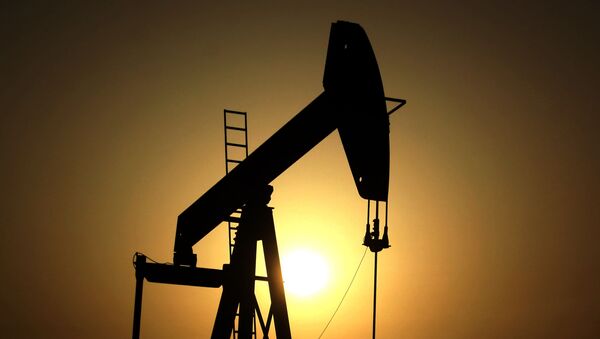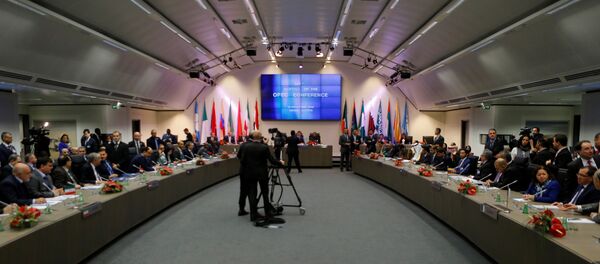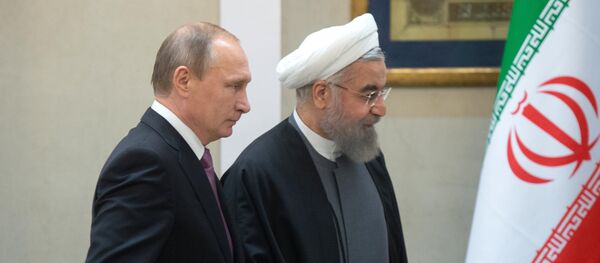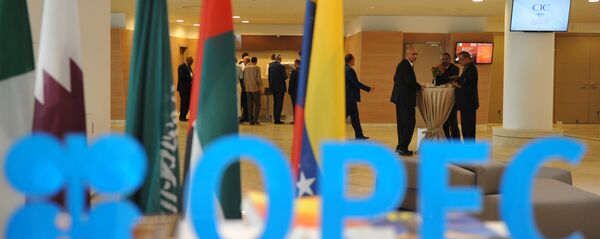"Starting January 1 the next year," Saudi Arabia’s Minister of Energy, Industry and Mineral Resources Khalid A. Al-Falih said when asked by reporters.
Earlier in the day, OPEC countries agreed to cut oil production by 1.2 million barrels a day to 32.5 million a day. Oil prices surged following the news. As of 9am (EST), Brent crude showed an 9.49% hike and was trading over $51.
"The agreement that OPEC reduces approx. 1.2 million barrels a day to bring its ceiling to 32.5 million barrels per day effective first of January 2017," OPEC conference president Mohammed Bin Saleh Sada, the Qatari energy minister, told during a press conference.
The OPEC president commented on the deal, saying that the agreement was reached with understanding and cooperation from all OPEC member-states. He said that the deal will be valid for half a year; later it will be reviewed. The UAE oil minister said that OPEC reached a "very good agreement" on oil production cuts.
Moreover, OPEC has created a monitoring committee on the implementation of the deal comprising Kuwait, Venezuela and Algeria.
The OPEC president said that Saudi Arabia will cut oil production by 486,000 barrels a day, according to the deal.
According to the Nigerian oil minister, Russia and other non-OPEC states are expected to participate in oil production cuts as well. The OPEC president confirmed the information and said that Russia agreed to cut oil production by 300,000 barrels a day.
"I'm glad to report that Russian Federation already committed to reduce 300,000 barrels [per day]," Sada said.
"They [will] announce, the minister Novak. Yesterday we were talking with him and they announced 300,000 barrels per day from Russia only, but we are expecting from other non-OPEC countries 300,000 barrels per day," Venezuelan Oil and Mining Affairs Minister Eulogio del Pino told reporters.
The petroleum minister of Iran, which is not an OPEC member, said that he is "very happy" over the reached deal. "I'm very happy [with the OPEC deal]," Iran’s Minister of Petroleum Bijan Namdar Zanganeh told reporters after the OPEC meeting.
Many non-OPEC states are ready to cut their oil production by a total of 600,000 barrels a day, the OPEC president said.
"This agreement has been reached following extensive consultations and understanding reached with key non-OPEC countries, including the Russian Federation that they contribute by a reduction of 600 tb/d production."
Iraq will cut oil production by 200,000 barrels a day, the OPEC president said. Libya's and Nigeria's oil production have not been taken into account by the deal.
The UAE by 139,000 barrels a day, according to the deal.
The Nigerian minister confirmed earlier media reports that Indonesia has been temporarily suspended from OPEC. The OPEC president said that Indonesia will not participate in the oil production cuts deal.
Saudi Arabia's minister will be the next OPEC president, the organization said. The next meeting of the Organization of the Petroleum Exporting Countries (OPEC) will take place on May 25, the organization said in a statement Wednesday.
Oil market turbulence caused oil prices to plunge from $115 per barrel in June 2014 to less than $30 per barrel in January 2016, causing hardship for oil exporters and placing a number of global oil producers at risk of bankruptcy. Since then, prices have slightly increased and are currently at $45-50 per barrel.
The previous oil producers' talks to freeze output failed in April after Iran refused to limit its output, prompting Saudi Arabia to pull out as well. Under the new deal, Iran has been granted exemptions from production cuts alongside Libya and Nigeria.




